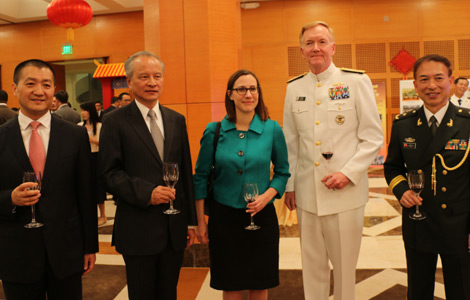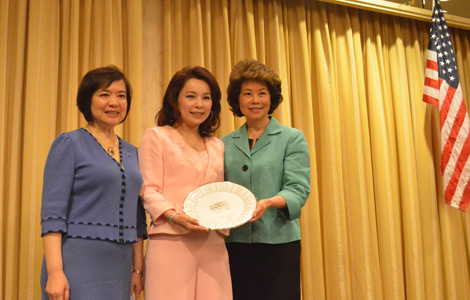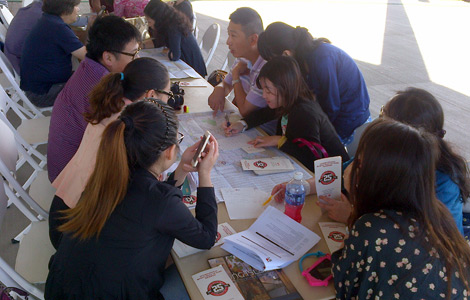Education and the purpose of philanthropy
Updated: 2014-08-02 07:43
By Raymond Zhou (China Daily)
|
||||||||
|
 |
|
 |
A year ago, a photo surfaced online of a father carrying a desk to school for his daughter. It outraged the country. Shouldn't this be the responsibility of the local education authority, not the parents? Only in those areas not covered by the State can philanthropists fill the void.
There are many grassroots programs. The one that provides free lunches is especially touching because it funds students who can barely pay for their meals. The money provides a slightly better diet, and the students get a higher level of nutrients when their bodies need them most.
One can question which is the better economic choice: a large sum for a world-renowned institution or a similar sum that may benefit tens of millions of hinterland children. If you push the argument further, you will realize that there are youngsters who suffer from even worse poverty and misery. They may not be in a country you are familiar with, but the same amount of money may be able to make a greater difference to their lives than in a Chinese backwater.
However, that is just one way of calculating the worthiness of a recipient. You can also use a different gauge and see how much money is wasted in overheads or on unnecessary expenses. And you may choose a recipient that is better managed and yields the least waste in the process.
Then there is the possibility of using philanthropy as a public relations tactic - to smooth the wrinkles of business dealings or boost one's personal image. If handled deftly, such a fusion of business and non business strategies would not raise eyebrows. If Chinese businesses have an eye for the global market, why not non business affairs, such as charities? Shouldn't one expand his or her horizon to that of the whole world?
I don't want to second-guess the motives behind Pan Shiyi's decision to fund Ivy League-bound Chinese students. He has made many donation to poor children in China's inland provinces. He may see the new move as helping those on the verge of success and the schools as incubators for tomorrow's leaders. Zhang Xin, Pan's wife, says: "I want the best students to receive the best education, regardless of whether their families can fund it."
For more X-ray stories, click here
Most Viewed
Editor's Picks

|

|

|

|

|

|
Today's Top News
69 dead, 150 injured in E China factory blast
Ebola-stricken American aid worker en route to U.S.
Obama hosts Africa summit with an eye on legacy
'Military drill isn't targeting any nation'
Snyder back to China to lure biz
Multinational bribery cases on rise
Alibaba may buoy mobile portfolio
'Drill isn't targeting any nation'
US Weekly

|

|














